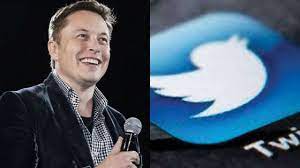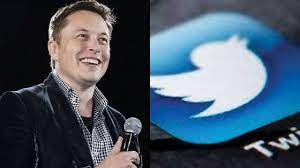
According to legal experts, Twitter Inc has a strong legal case against Elon Musk for walking away from his $44 billion bid to acquire the U.S. social media business, but it may choose for a renegotiation or settlement rather than a lengthy court battle.
The Delaware courts, where the two parties' case will be heard, have set a high threshold for acquirers to be allowed to quit their arrangements. However, according to three corporate law academics, target corporations frequently choose the assurance of a renegotiated transaction at a lower price or cash compensation to a lengthy court battle that can linger for months.
"The argument for settling at something lower is that litigation is expensive," said Adam Badawi, a law professor at UC Berkeley. "And this thing is so messy that it might not be worth it."
There were no comments on the issue from Twitter and Musk.
Musk's major complaint against Twitter is that the San Francisco-based firm broke their agreement by refusing to disclose enough information with him to back up its assertion that spam or false accounts account for less than 5% of its active users. Twitter has not changed its estimate, but it is probable that the number of these accounts is higher.
Musk also stated in a letter to Twitter on Friday that the company's misrepresenting of the number of spam accounts might be a "material adverse effect (MAE)" that would allow him to terminate the arrangement under the provisions of the contract.
However, according to legal experts, Delaware courts regard MAEs as significant, unexpected events that inflict long-term harm to a company's performance.
Purchase contracts like Musk's and Twitter's are so prescriptive that a judge has found that an MAE has only been legitimately triggered once in the history of such litigation: in the instance of German healthcare giant Fresenius Kabi AG terminating its deal for U.S. generic pharmaceutical Akorn Inc in 2018.
A judge concluded in that case that Akorn's assurances to Fresenius that it was in conformity with its regulatory duties were false. It also discovered that Akorn had concealed information concerning its poor performance that had surfaced as a result of whistleblower complaints.
Legal experts dismissed the notion that erroneous spam account numbers would result in an MAE for Twitter on par with the issues that plagued Akorn.
"If it goes to court, Musk has the burden to prove more likely than not, that the spam account numbers not only were false, but they were so false that it will have significant effect on Twitter's earnings going forward," said Ann Lipton, associate dean for faculty research at Tulane Law School.
Musk also claimed that Twitter violated their contract by removing two crucial high-ranking employees, its revenue product lead and general manager of consumer, without his authorization.
"That's probably the only claim that has any purchase," said Brian Quinn, a professor at Boston College Law School, but he added he did not believe the firings were serious enough to affect Twitter's business.
The Delaware court permitted Mirae Asset Capital Co of South Korea to walk away from a $5.8 billion luxury hotel acquisition in 2020 because the pandemic led the seller, Anbang Insurance Group of China, to change its normal course hotel operations.
The courts usually rule in favour of the target companies and require acquirers to complete their transactions - a legal remedy known as "specific performance."
Tyson Foods, the largest chicken processor in the United States, decided in 2001 that it no longer wished to acquire IBP Inc., the largest meatpacker. The transaction was ordered to be executed by a judge.
Many businesses, on the other hand, seek to settle with their acquirers in order to stop the uncertainty about their future that might affect their employees, customers, and suppliers.
This occurred more frequently when the COVID-19 pandemic erupted in 2020, causing a global economic crisis. In one case, French retailer LVMH threatened to cancel an agreement with Tiffany & Co. The jewellery retailer in the United States agreed to reduce the acquisition price by $425 million to $15.8 billion.
Simon Property Group Inc, the largest mall operator in the United States, was able to reduce the price of a controlling stake in rival Taubman Centers Inc by 18 per cent to $2.65 billion.
In exchange for cash recompense, other corporations let the acquirers walk away. Channel Medsystems Inc, a medical technology startup, sued Boston Scientific Corp for attempting to back out of a $275 million transaction. A judge concluded in 2019 that the sale should be finalised, and Boston Scientific paid an undisclosed payment to Channel Medsystems.
(Source:www.latestly.com)
The Delaware courts, where the two parties' case will be heard, have set a high threshold for acquirers to be allowed to quit their arrangements. However, according to three corporate law academics, target corporations frequently choose the assurance of a renegotiated transaction at a lower price or cash compensation to a lengthy court battle that can linger for months.
"The argument for settling at something lower is that litigation is expensive," said Adam Badawi, a law professor at UC Berkeley. "And this thing is so messy that it might not be worth it."
There were no comments on the issue from Twitter and Musk.
Musk's major complaint against Twitter is that the San Francisco-based firm broke their agreement by refusing to disclose enough information with him to back up its assertion that spam or false accounts account for less than 5% of its active users. Twitter has not changed its estimate, but it is probable that the number of these accounts is higher.
Musk also stated in a letter to Twitter on Friday that the company's misrepresenting of the number of spam accounts might be a "material adverse effect (MAE)" that would allow him to terminate the arrangement under the provisions of the contract.
However, according to legal experts, Delaware courts regard MAEs as significant, unexpected events that inflict long-term harm to a company's performance.
Purchase contracts like Musk's and Twitter's are so prescriptive that a judge has found that an MAE has only been legitimately triggered once in the history of such litigation: in the instance of German healthcare giant Fresenius Kabi AG terminating its deal for U.S. generic pharmaceutical Akorn Inc in 2018.
A judge concluded in that case that Akorn's assurances to Fresenius that it was in conformity with its regulatory duties were false. It also discovered that Akorn had concealed information concerning its poor performance that had surfaced as a result of whistleblower complaints.
Legal experts dismissed the notion that erroneous spam account numbers would result in an MAE for Twitter on par with the issues that plagued Akorn.
"If it goes to court, Musk has the burden to prove more likely than not, that the spam account numbers not only were false, but they were so false that it will have significant effect on Twitter's earnings going forward," said Ann Lipton, associate dean for faculty research at Tulane Law School.
Musk also claimed that Twitter violated their contract by removing two crucial high-ranking employees, its revenue product lead and general manager of consumer, without his authorization.
"That's probably the only claim that has any purchase," said Brian Quinn, a professor at Boston College Law School, but he added he did not believe the firings were serious enough to affect Twitter's business.
The Delaware court permitted Mirae Asset Capital Co of South Korea to walk away from a $5.8 billion luxury hotel acquisition in 2020 because the pandemic led the seller, Anbang Insurance Group of China, to change its normal course hotel operations.
The courts usually rule in favour of the target companies and require acquirers to complete their transactions - a legal remedy known as "specific performance."
Tyson Foods, the largest chicken processor in the United States, decided in 2001 that it no longer wished to acquire IBP Inc., the largest meatpacker. The transaction was ordered to be executed by a judge.
Many businesses, on the other hand, seek to settle with their acquirers in order to stop the uncertainty about their future that might affect their employees, customers, and suppliers.
This occurred more frequently when the COVID-19 pandemic erupted in 2020, causing a global economic crisis. In one case, French retailer LVMH threatened to cancel an agreement with Tiffany & Co. The jewellery retailer in the United States agreed to reduce the acquisition price by $425 million to $15.8 billion.
Simon Property Group Inc, the largest mall operator in the United States, was able to reduce the price of a controlling stake in rival Taubman Centers Inc by 18 per cent to $2.65 billion.
In exchange for cash recompense, other corporations let the acquirers walk away. Channel Medsystems Inc, a medical technology startup, sued Boston Scientific Corp for attempting to back out of a $275 million transaction. A judge concluded in 2019 that the sale should be finalised, and Boston Scientific paid an undisclosed payment to Channel Medsystems.
(Source:www.latestly.com)





